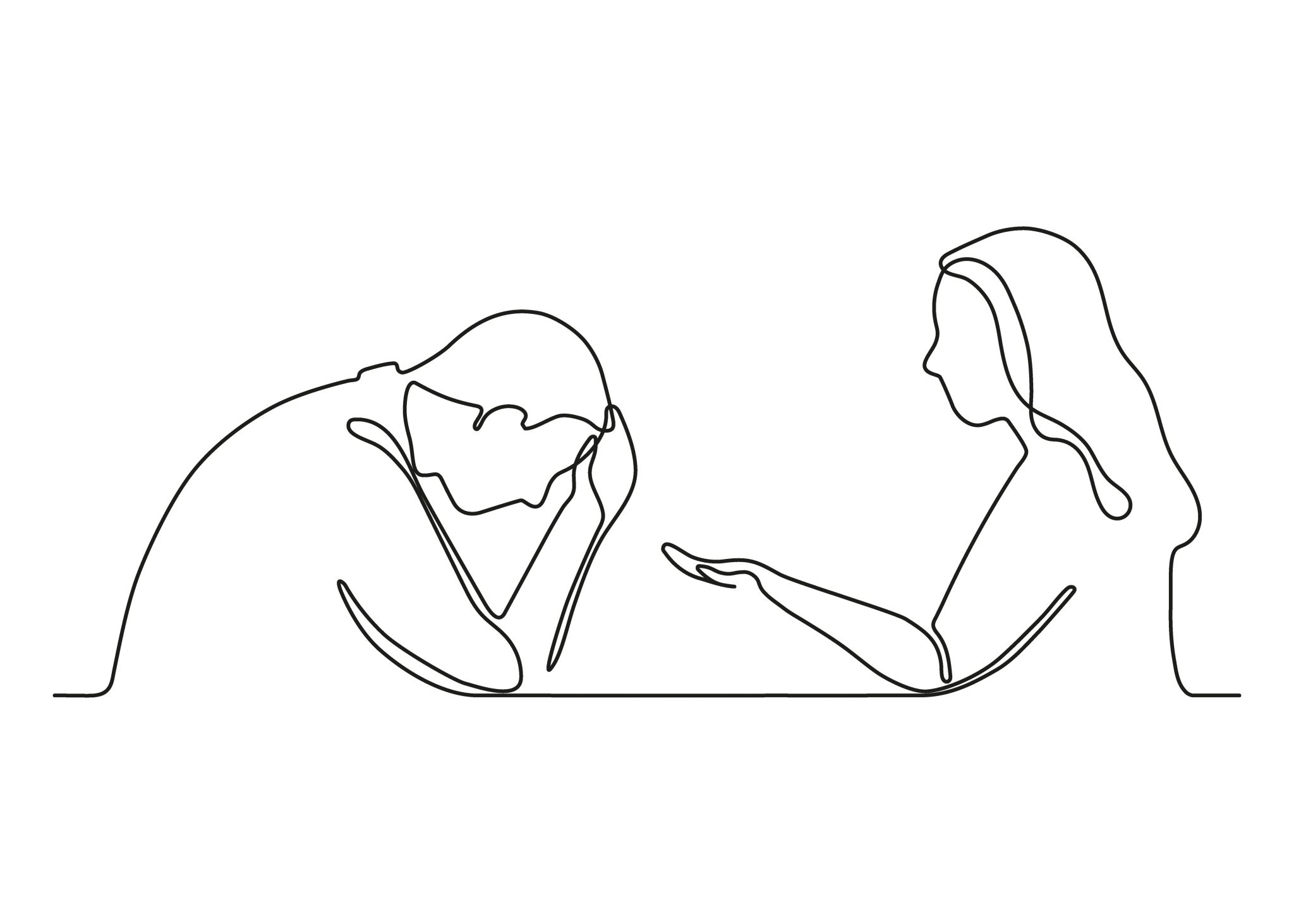Codependency refers to a pattern of behaviour in which an individual becomes overly dependent on another person or entity. This can manifest in many ways, including an intense need for attention or approval, excessive caretaking, and an inability to make decisions without the influence of others. Codependency is often associated with adverse outcomes, such as low self-esteem, poor communication skills, and unhealthy relationships.
Codependency can be characterised by several traits, including low self-worth, poor boundaries, and an excessive need to control or manipulate others. Additionally, codependent individuals often struggle to communicate their needs and feelings and maybe excessively passive or aggressive in their relationships.
The impact of codependency can be significant and far-reaching. It can cause individuals to form unhealthy relationships, struggle to maintain a sense of self, and experience ongoing emotional and psychological distress.

What is on this page
Codependency and Asking For Help
The Benefits of Seeking Professional Help
Fortunately, help is available for those struggling with codependency. Seeking professional assistance can lead to several benefits, including:
- Personal growth and self-discovery: Working with a mental health professional can help individuals better understand their needs, feelings, and motivations. This process of self-discovery can be highly empowering and lead to improved self-esteem and self-worth.
- Improved communication skills: Many codependent individuals struggle with communication, and working with a therapist can help them develop more effective and assertive communication strategies.
- Better relationships with others: By overcoming codependency and learning to set healthy boundaries, individuals can form more fulfilling and mutually-beneficial relationships with others.
- Increased self-esteem and self-worth: Through self-discovery and learning to stand up for themselves, individuals can develop a stronger sense of self and a greater sense of self-worth.
- Better coping strategies: Therapists can help codependent individuals develop healthier coping mechanisms for dealing with stress and difficult emotions.
- Overcoming negative patterns: Working with a professional can help individuals break free from negative behaviour patterns and develop healthier, more fulfilling ways of relating to others.
Why is Asking for Help so Challenging?
One of the biggest struggles of codependency is asking for help. Codependent individuals often have difficulty setting boundaries and communicating their needs and feelings, making it challenging to reach out for assistance. They may also have low self-esteem or a fear of rejection, making it difficult to trust others and ask for help.
Despite these challenges, seeking professional help is essential for overcoming codependency and building a healthier, happier life. Whether through therapy, support groups, or other forms of support, the proper assistance can provide the guidance and encouragement needed to make positive changes.
When seeking help, it’s essential to find a professional who has experience working with individuals struggling with codependency. Look for a therapist or support group that provides a safe, non-judgmental environment to explore and work through codependent patterns. Consider reaching out to mental health organisations for recommendations and resources, and don’t hesitate to ask for referrals from friends and family.
It can be challenging to take that first step and ask for help, but it’s an important and courageous step towards healing and recovery. It is important throughout this journey to remember there is no shame in seeking assistance and that you deserve the support and guidance necessary to overcome codependency and build a healthier, more fulfilling life.
Types of Professional Help
There are several types of professional help available for those struggling with codependency, including:
- Therapy: Individual therapy with a mental health professional can provide personalised support and guidance as individuals overcome codependency and develop healthier ways of relating to others.
- Group therapy: Group therapy can provide individuals with a supportive community as they work through their issues and develop healthy coping strategies.
- Support groups: Support groups can be an excellent resource for those struggling with codependency, offering a safe and supportive environment to share experiences and receive support from others.

Finding Professional Help
Finding the right professional help can be essential to recovery from codependency. Consider the following steps when seeking help:
- Researching therapists: Look for mental health professionals who have experience working with individuals struggling with codependency.
- Asking for referrals from friends and family: Personal recommendations from people you trust can be valuable when searching for a mental health professional.
- Reaching out to mental health organisations: National and local mental health organisations can provide information and resources for those seeking help for codependency.
Conclusion
Seeking professional help for codependency can be a decisive step towards healing and recovery. Through therapy and other forms of support, individuals can learn to understand and overcome their codependent patterns, develop healthier ways of relating to others, and lead more fulfilling and emotionally satisfying lives. Whether through individual therapy, group therapy, or support groups, the right professional help can provide the guidance and support necessary to break free from codependency and build a stronger, healthier self.
If you are struggling with codependency, don’t hesitate to take that first step towards healing and recovery. Whether it’s finding a therapist, joining a support group, or reaching out to a mental health organisation, seeking professional help can be a life-changing decision. Individuals can build stronger, more fulfilling relationships and lead happier, more fulfilling lives by taking the time to understand and overcome codependency.

